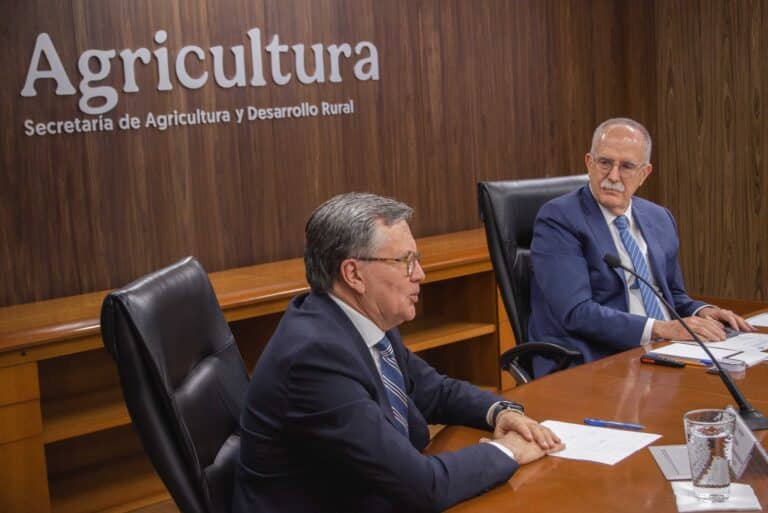The activity is part of IICA’s commitment to the Chilean Ministry of Agriculture to promote the use of biofertilizers, mainly in the country’s coastal dryland sector, for producers affected by drought, eroded soils, the effects of climate change and high fertilizer prices.
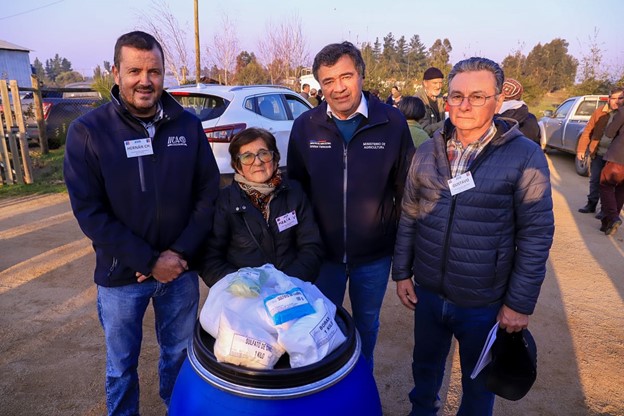
Santiago, 13 August 2024 – IICA. A group of 30 sheep and goat farmers from Marchigüe, La Estrella, and Pichilemu in the O’Higgins region of Chile received a complete biofertilizer kit (Supermagro) and training from the Inter-American Institute for Cooperation on Agriculture (IICA). The training was designed to teach them how to produce biofertilizers using materials from their own farms for various types of crops.
The event was attended by Chilean Agriculture Minister Esteban Valenzuela, who praised the initiative.
“We are happy to be in the province of Cardenal Caro, in Marchigüe, delivering wonderful biofertilizer kits that IICA is distributing in cooperation with the Chilean government. We need to multiply good agricultural practices, using inputs such as milk, chancaca (a type of raw sugar), and livestock manure to produce efficiently, productively, and sustainably in our pastures and when growing vegetables,” Valenzuela commented.
This activity aligns with IICA’s commitment to the Chilean Ministry of Agriculture to promote the use of biofertilizers, especially in the coastal dryland sector of the country, for producers affected by drought, eroded soils, climate change effects, and high fertilizer prices.
In 2024, IICA has provided more than 100 kits in Chile and trained women and rural youth, focusing on living soils and sustainable agriculture. It has also developed knowledge sessions on agroforestry and restoration of soils affected by forest fires in collaboration with the Forestry Institute and has contributed to the reconstruction of the Viña del Mar Botanical Garden.
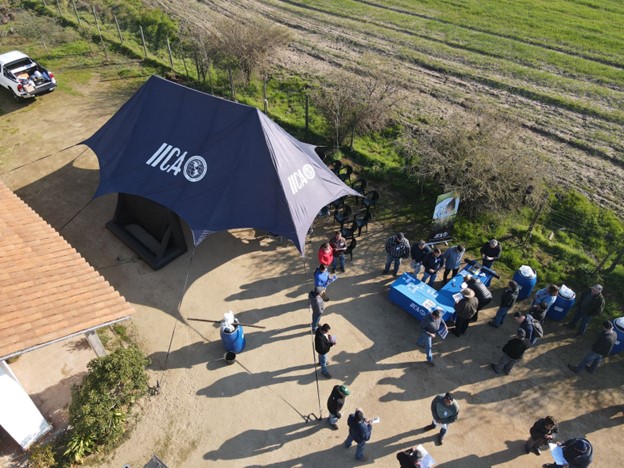
“We went from northern Chile, in Pica, to the south, in the large island of Chiloé, conducting training and distributing kits to technical experts from the Agricultural Development Institute (INDAP) and the Local Development Program (PRODESAL), as well as to students from technical schools, and to producers, especially women producers who are very interested and eager to learn. It is a product that costs 250 pesos per liter, is simple to make, and easy to apply,” said Hernán Chiriboga, IICA Representative in Chile.
Chiriboga explained that the use of biofertilizers like Supermagro is particularly relevant for family farming. This is because farmers can create their own agricultural inputs using materials generated on their farms, such as guano, thus promoting a circular economy.
All this information is detailed in a methodological guide for producing the Supermagro biofertilizer, compost, and amino acids from mature fruits. The document is available for free download at https://iica.int/es/countries/chile.
Training for farmers
The training took place on the farm of Juan Fuentes Lizana, an agricultural expert and prominent goat cheese farmer in Chile. Fuentes has dedicated many years to developing regenerative agriculture practices, such as no-till and direct seeding. His experience is crucial for other producers to adopt these sustainable practices.
Fuentes is already using Supermagro, utilizing the guano from his goat production, applying it to the pastures where oats and triticale are cultivated for his goats, as well as supplementary or annual pastures used for grazing or hay.
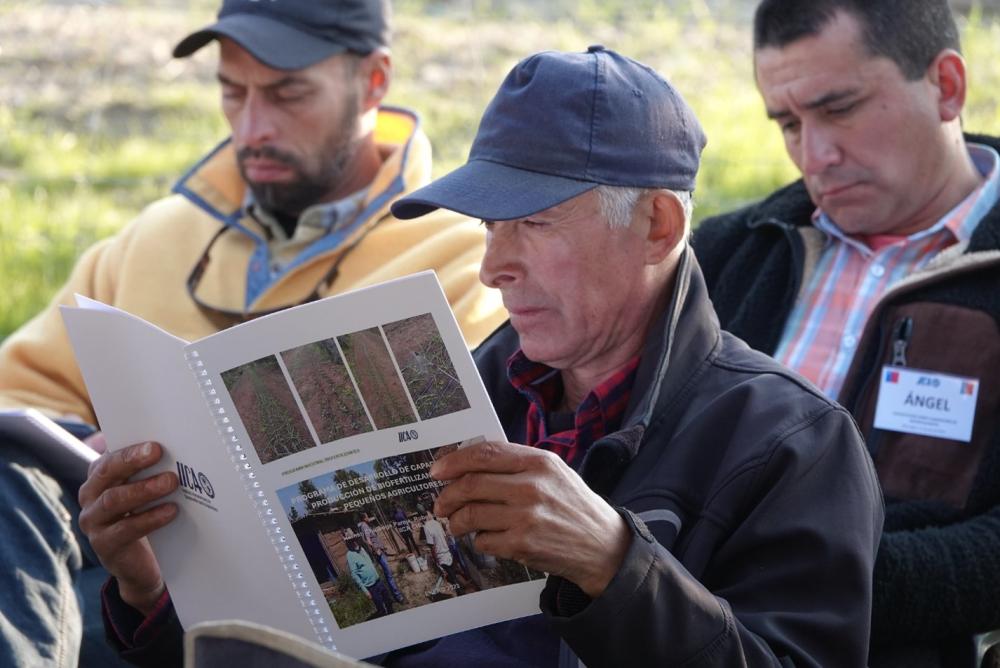
“There are 30 to 40 peasant producers who do not know Supermagro or sustainable or regenerative agriculture, coming from a chemical-based background. This will turn their minds around 180 degrees. Hopefully, they will learn that there are different alternatives that genuinely improve the soil. We are dealing with very eroded soil, almost a meter below the level left by our parents, in a low rainfall area, where we rely solely on rain. It is very important to switch our approach and be able to make our own fertilizers and understand that the waste from our fields can become soil amendments,” Fuentes said.
Online Course
The effort to promote the use of biofertilizers extends to the virtual realm as well. IICA has partnered with the Foundation for Communications, Training, and Rural Culture (FUCOA) to offer this training online.
FUCOA Director Claudio Urtubia attended the training and invited producers to participate in the online course, which includes a certificate of participation: “The biofertilizer course, named Supermagro, is the result of a successful partnership between IICA and the Chilean Agricultural School, which is part of FUCOA under the Ministry of Agriculture of Chile. It is open and offers an opportunity to further develop agroecological discipline, with specific aims such as restoring soils damaged by various contingencies, including forest fires.”
Access to the Chilean Agricultural School is free. Simply go to http://www.chileagricola.cl to access over 50 courses available on this platform, along with more than 1,200 catalogs, fact sheets, and videos.
.
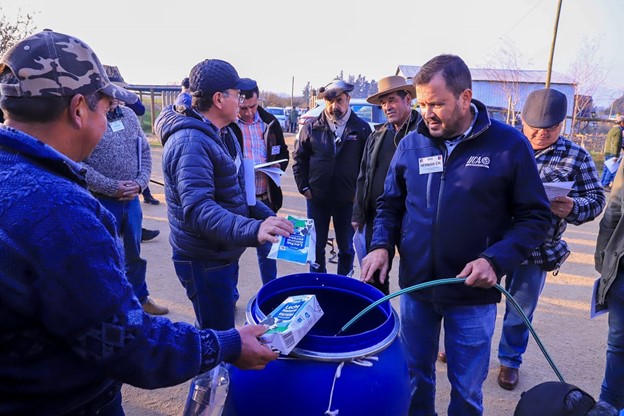
More information:
Institutional Communication Division.
comunicacion.institucional@iica.int

